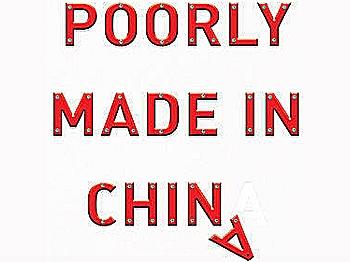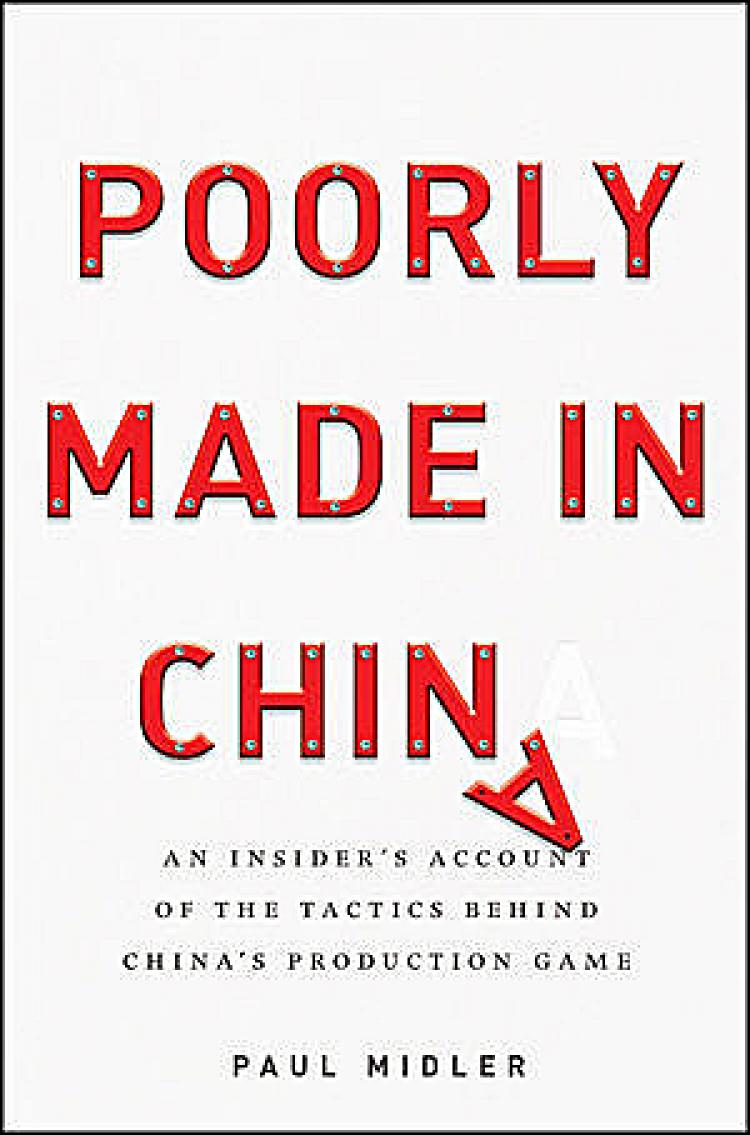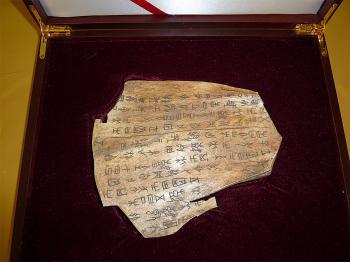While reading Poorly Made in China, An Insider’s Account of the Tactics Behind China’s Production Game, by Paul Midler, it was as if I was there with the author as he detailed the misadventures of Western importers being out-maneuvered by mainland China manufacturers at almost every turn.
Through a vivid narrative of his own experiences, Midler, a Mandarin-speaking consultant for Westerners trying to do business in Asia, exposes the mind-boggling risks of conducting business in a country in which norms have been turned upside down from traditional culture. Yet, the author’s style is humorous at times and often light.
In the West, businesses often court each other with caution at first, and then slowly develop trust as the business relationship evolves. Through the descriptions of about eight business pairings, the reader is shown how Westerners are at first lavishly treated. However, once they make their initial investments, their situations become progressively more difficult.
Midler uses pseudonyms for the people and companies he describes.
One pairing between an importer and manufacturers was the story of Bernie, the savvy owner of Carter Johnson, a body-care products company, and the Chinese company King Chemical. Through his story, we learn of “quality fade,” a deliberate, incremental, and surreptitious process in which manufacturers reduce the quality of ingredients to widen profit margins.
One of the products Carter Johnson hired King Chemical to produce was shampoo. When the factory owners were caught using smaller, inappropriate labels, they continued to do so until the supply ran out, despite protests from Midler and the importer.
The thickness of the plastic shampoo bottles was slowly reduced until they broke under pressure while being warehoused, causing a mess and a considerable financial loss. The factory owners passed the cost onto the importer.
Bernie had provided King Chemical with the formulation for the shampoo, but when quality problems arose and he asked to see a list of the ingredients, he was told it was proprietary information.
Through all the accounts in this book, it becomes clear how Western countries have become plagued by defective products, such as exploding tires, poisonous toys made with lead paint, and as reported in The Epoch Times, drywall that emits poisonous fumes.
What also becomes obvious is what a weak bargaining position the Westerners are in. They are in a country in which they do not understand the language or business tactics. Businessmen know that in negotiations, information is power.
The Chinese manufacturers written about in the book were masters of obfuscation, obtaining much information, while disclosing little, and creating illusion after illusion. Most importantly, the mindset and negotiation strategies many Westerners used seem to be anchored in the legal protections that they had in their own countries, but that do not exist in China.
Midler, who has an MBA from Wharton, was even-handed; he also showed how some importers were trapped by their own greed. Other Western business people were more sympathetic subjects. Without clarity of their situations, they were trying to help their companies in an ever-changing world economy.
In addition, the author shows great sympathy for many of Chinese citizens he meets who are trapped within a system they did not create.
Midler said in an interview, “There are a lot of people who remain in denial about the China opportunity.” Commenting about the factory owners, he said they “forever keep foreign partners at a break-even point,” shifting all of the profits to themselves.
Through the author’s eyes and ears, the reader is transported into a business environment where appearance triumphs over substance and quality, workers rights are almost non-existent, and safety standards are completely arbitrary.
In addition, one is given an inside view into an industrial environment almost devoid of designers, but filled with experts in copying, retrofitting, and counterfeiting.
As I closed the book, I thought of the made-in-China umbrella that I had recently used only twice, which sprang apart into many parts as I opened it. I was grateful it was not a device that I depended on for safety.
Midler did not start out intending to write a book. During the course of his experiences, he took notes, thinking perhaps he would create a brief for his clients. He eventually realized that the understanding he had gained could benefit many.
The 236-page text is a fast, enjoyable read. There are a few times when the pace does slow, but the author is explaining simple situations in great depth to give the reader more understanding of business and interpersonal dynamics.
Poorly Made in China is an invaluable book for anyone considering doing business in China or teaching a course in international trade. This is also a book for all consumers in countries that import products from China.
Poorly Made in China, An Insider’s Account of the Tactics Behind China’s Production Game, by Paul Midler (2009), is published by Wiley and is available at Amazon.com.






